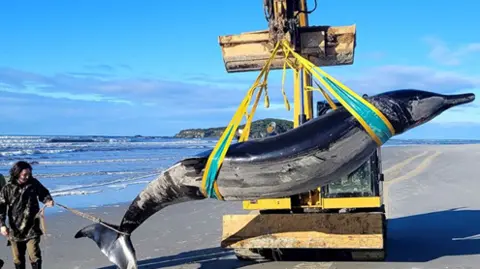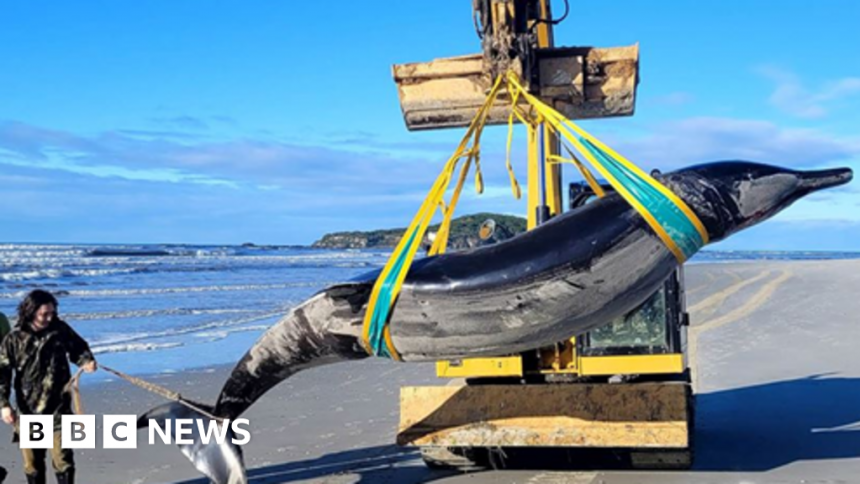‘World’s rarest whale’ washes up on NZ beach
 New Zealand Department of Conservation
New Zealand Department of ConservationA whale that was found dead on a beach in New Zealand earlier this month has been identified by scientists as a spade-toothed whale – a species so rare it has never been seen alive.
The five-metre long, beaked creature’s identity was determined from its colour patterns and the shape of its skull, beak and teeth.
Its remains have been placed in cold storage whilst DNA testing takes place, with experts saying it may take several weeks before a final identification is confirmed.
Because so few specimens have been found and there have been no live sightings, very little is known about the spade-toothed whale.
Researchers say the carcass discovery could help them acquire crucial new information about the species.
Local officials were notified that the whale had been washed ashore on 4 July at the mouth of the Taiari river, in Otago province on New Zealand’s South Island.
Department of Conservation (DOC) official Gabe Davies said in a statement that spade-toothed whales were one of the least known large mammalian species, with only six samples ever documented worldwide.
“From a scientific and conservation point of view, this is huge,” he added.
The department said that because the specimen had only recently died it could become the first whale of the species to be dissected.
New Zealand’s Māori people regard whales as a sacred treasure, and DOC said local Maori communities would take part in deciding the whale’s fate.
The species was first described in 1874 after a lower jaw and two teeth were collected from New Zealand’s Chatham Islands. Skeletal remains of two other specimens found off islands in New Zealand and Chile enabled scientists to confirm a new species.
Two more recent findings of stranded whales off New Zealand’s North Island in 2010 and 2017 added to the small collection.







